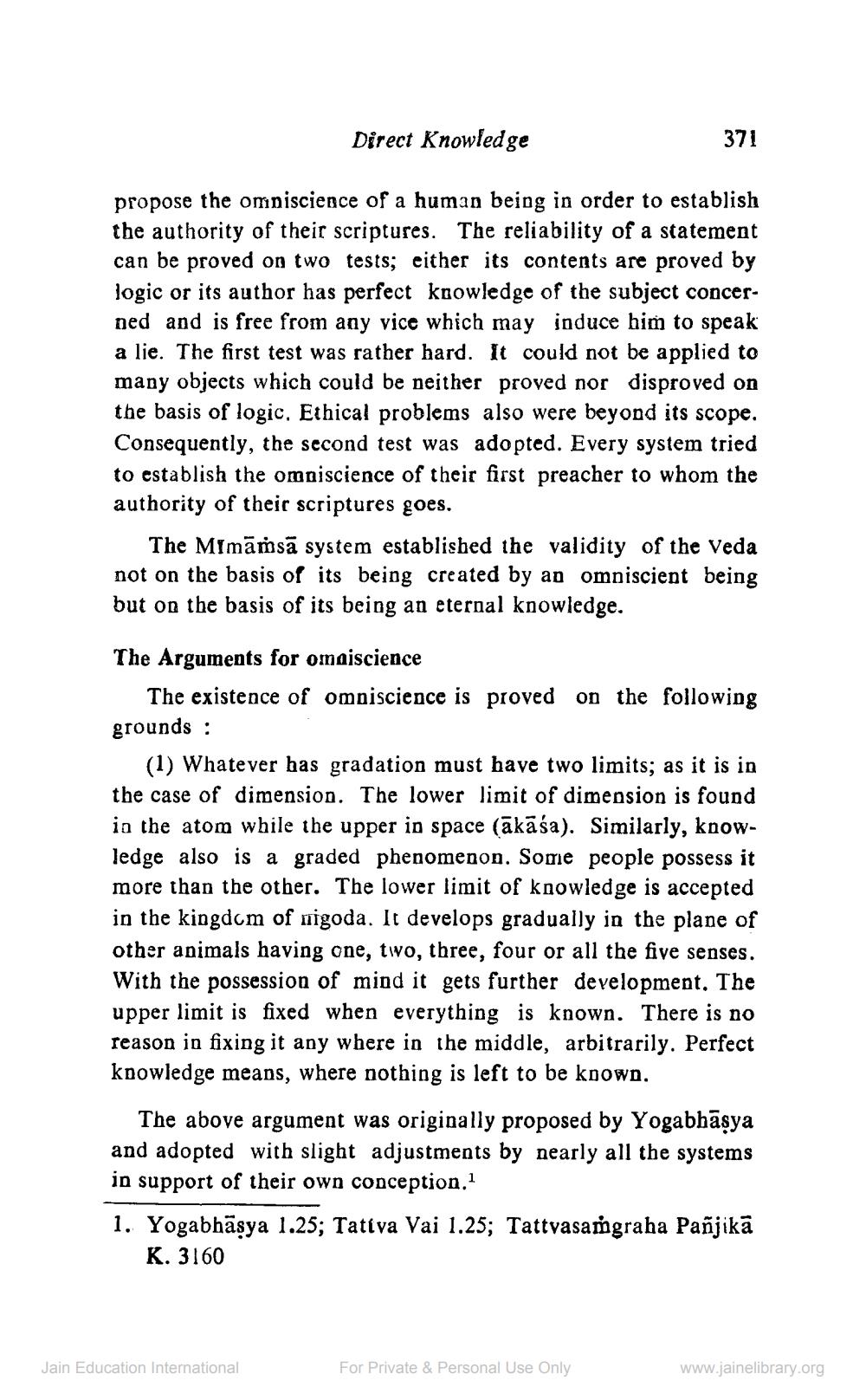________________
Direct Knowledge
371
propose the omniscience of a human being in order to establish the authority of their scriptures. The reliability of a statement can be proved on two tests; either its contents are proved by logic or its author has perfect knowledge of the subject concerned and is free from any vice which may induce him to speak a lie. The first test was rather hard. It could not be applied to many objects which could be neither proved nor disproved on the basis of logic. Ethical problems also were beyond its scope. Consequently, the second test was adopted. Every system tried to establish the omniscience of their first preacher to whom the authority of their scriptures goes.
The Mimāṁsā system established the validity of the Veda not on the basis of its being created by an omniscient being but on the basis of its being an eternal knowledge.
The Arguments for omaiscience
The existence of omniscience is proved on the following grounds :
(1) Whatever has gradation must have two limits; as it is in the case of dimension. The lower limit of dimension is found in the atom while the upper in space (ākāśa). Similarly, knowledge also is a graded phenomenon. Some people possess it more than the other. The lower limit of knowledge is accepted in the kingdom of migoda. It develops gradually in the plane of other animals having one, two, three, four or all the five senses. With the possession of mind it gets further development. The upper limit is fixed when everything is known. There is no reason in fixing it any where in the middle, arbitrarily. Perfect knowledge means, where nothing is left to be known.
The above argument was originally proposed by Yogabbāsya and adopted with slight adjustments by nearly all the systems in support of their own conception." 1. Yogabhāsya 1.25; Tativa Vai 1.25; Tattvasaṁgraha Pañjikā
K. 3160
Jain Education International
For Private & Personal Use Only
www.jainelibrary.org




